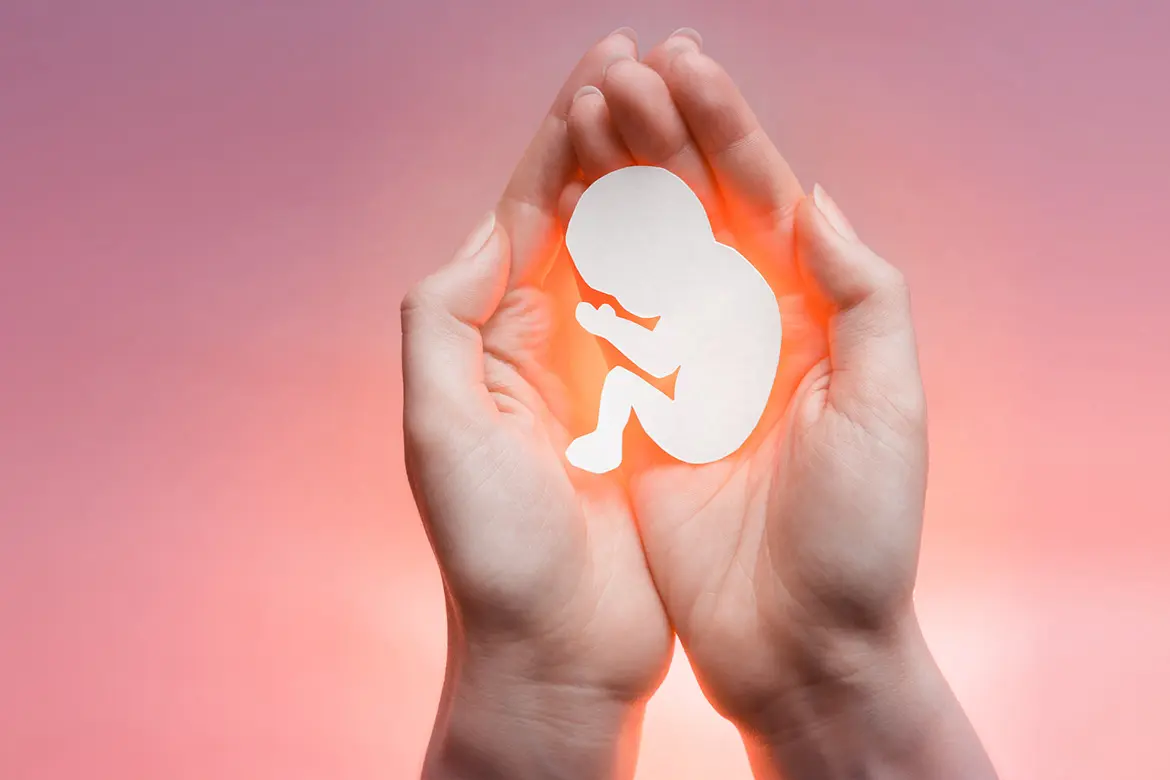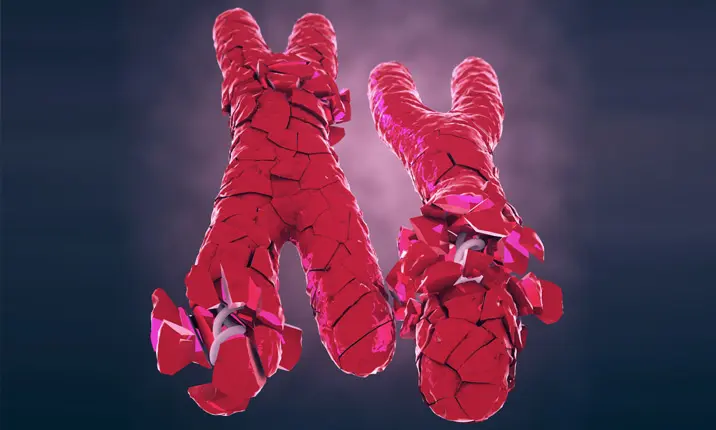

Source: Shutterstock
Miscarriages: More Common Than You Think
Last updated: Thursday, October 7, 2021 | 6 min reading time
Between 10 – 20% of known pregnancies worldwide end in miscarriage. If you have miscarried before, it is important to know that in most cases you will be able to have a healthy pregnancy afterwards.
A miscarriage is defined as the loss of a foetus before the 20th week of pregnancy, within the first 3 months (first trimester) of pregnancy.
As it occurs relatively early in a pregnancy, many people might think it is less traumatic than the loss of a pregnancy at a later stage of development, known as a stillborn baby.
This is not necessarily the case, as the loss of a baby at any stage of pregnancy is emotional and difficult for everyone involved.
If you are pregnant or planning for a baby, it's important to know the facts about miscarriages and where to seek help and treatment for both your physical and mental health.
Spontaneous abortion
A miscarriage is sometimes called a spontaneous abortion, referring to the sudden nature of a miscarriage and the fact that it is not something that can be controlled.
Occurring within the first 3 months or the first trimester of pregnancy, approximately 10 – 20% of known pregnancies end in miscarriage. The true occurrence may be much higher, as it is also possible for some miscarriages to occur very early in the pregnancy, before a woman realises she is pregnant.
What are the signs and symptoms of a miscarriage?
The symptoms of a spontaneous abortion or miscarriage include:
- Abdominal or back pain
- Vaginal bleeding, which may include passing blood clots or bloody tissue
- Cramps or contractions
- Feeling dizzy or faint
- Fever
If you are pregnant and experiencing any of these symptoms, you should visit a hospital or a gynaecologist immediately.
Types of miscarriages
Miscarriages can be classified in a number of ways. Common classifications include:
- Complete miscarriage, where everything is expelled from the womb
- Threatened miscarriage, where blood loss occurs and a miscarriage may take place
- Blighted ovum, where a fertilised egg is implanted but never develops
- Recurrent miscarriage, where a woman has multiple miscarriages in a row
Ectopic Pregnancy
An ectopic pregnancy occurs when a fertilised egg implants somewhere outside the womb. It is possible for the fertilised egg to be found in other locations, most commonly in one of the fallopian tubes, though it can also lodge in the abdominal cavity, or cervix.
When this happens, it is not possible to save the pregnancy.
It is not considered a miscarriage because the pregnancy is unable to continue to full term.
An untreated ectopic pregnancy can be a medical emergency, especially if you experience sudden symptoms such as a sharp or intense pain in the abdominal area, accompanied by dizziness or fainting. These could mean that the fallopian tube has ruptured, requiring immediate surgery.
Early detection of an ectopic pregnancy can prevent serious medical complications and may save the fallopian tube from permanent damage.
Missed miscarriage
A miscarriage may also be classified as "missed".
A missed miscarriage occurs when the embryo stops developing, but the body behaves as though the pregnancy is still ongoing.
It usually doesn't cause any of the typical symptoms of a miscarriage, which is why you won't be aware that it is happening.
Signs of a missed miscarriage
Some women may have some discharge, or notice that some of their pregnancy symptoms such as nausea and breast tenderness lessen.
However, it is more likely that the loss of the pregnancy will only be noted once you have a scan with your obstetrician.
If there has been a missed miscarriage, your doctor will not be able to locate a heartbeat. Missed miscarriages are common, but the good news is, a missed miscarriage is not likely to happen twice.
Can you miscarry if you didn't know you were pregnant?
Because miscarriages are much more common in the very early stages of pregnancy, within the first 12 weeks, many women have not experienced any of the typical signs of a pregnancy yet.
This may be particularly true for women who have not been actively trying to get pregnant, and therefore will not have been watching closely for any symptoms, or taking regular pregnancy tests. In this instance, the miscarriage may be the first sign that anything is different.
However, even if you are not aware of a pregnancy until a miscarriage occurs, it does not mean that the loss will not be difficult to deal with. It's still important to see your doctor and seek help and treatment.
Causes of miscarriage
In most cases, the exact cause of a miscarriage is unknown. It is very unlikely that your doctor will conduct any tests to find out the cause, unless you have had several (recurrent) miscarriages. In most cases, miscarriages are caused by:
Chromosomal abnormalities in the foetus
This is by far the most common cause of pregnancy loss. If chromosomes are missing or damaged the foetus will most likely fail to develop. There is nothing anyone can do to prevent this from happening.
Environmental or lifestyle problems
Your lifestyle overall will not typically cause a miscarriage. However, excessive drinking, smoking or drug use can interfere with the development of the foetus and lead to pregnancy loss.
Living or working in a hazardous environment, with extreme levels of dangerous chemicals such as lead, pesticides or mercury may also have an impact.
Medical conditions
Sometimes health problems in the mother such as diabetes, thyroid disorders, autoimmune conditions, and infections can cause a miscarriage.
Abnormalities of the reproductive system involving the cervix or uterus may also increase the risk for miscarriage.
Age
The older a woman is, the more likely a miscarriage is to occur. If you have had several miscarriages before, you are also more at risk. In addition, if you suffer from any conditions that affect pregnancy, this will also increase your risk of miscarriage.
Miscarriage treatment options
When you visit your doctor because of a miscarriage, they will conduct a full exam to ensure that the foetus is no longer viable. This will include a pelvic exam, ultrasounds and blood tests to check pregnancy hormone levels.
If you are having a threatened miscarriage, with vaginal bleeding, your doctor may prescribe you with progesterone as this may help to bring down the chances of a miscarriage. Progesterone is most commonly given orally or as an intramuscular injection.
If a miscarriage is diagnosed, you will usually not require any treatment, as your body will have most likely already expelled the tissue. If there is any remaining tissue left behind, your doctor may need to perform a small surgery to remove the remaining tissue in the uterus.
Missed miscarriage treatment options
If you experience a missed miscarriage, your obstetrician will discuss and suggest a few treatment options best suited for you which may include:
- Expectant management – this is when you wait for your body to pass the tissue naturally, as in a complete miscarriage.
- Medical management – your doctor may offer you medication to start the miscarriage process.
- Surgical management – you may require surgery to remove the tissue, which is known as evacuation of uterus or dilation and curettage (D&C) surgery.
Physical recovery
In all cases, you will need to get plenty of rest to recover physically and emotionally.
Your recovery will depend on your overall health and how far along your pregnancy was before the miscarriage.
Some women experience spotting and abdominal discomfort, and you should avoid having sex or using tampons for at least two weeks after a miscarriage.
Your normal menstrual cycle should resume in 4 – 6 weeks.
If you have any other symptoms or concerns, please speak to your doctor for advice.
Support after a miscarriage
Emotional support is very important after a miscarriage. You may experience a wide range of emotions, from feeling overwhelmed or fatigued to finding it difficult to sleep.
To help you through this difficult time, you can find support in many ways. These include:
- Asking for help with daily task or chores.
- Speaking to someone about your loss. Although it is not always easy to talk about miscarriage or pregnancy loss, talking to someone such as a friend or therapist could be really helpful.
- Join a support group to connect with others who have gone through a similar experience. You may also find that offering your support to others can help you feel better.
Remember, everyone experiences loss differently, and it takes time to grieve. There is no fixed duration or schedule for emotional recovery.
After a miscarriage
When you are physically and emotionally ready, you may want to try to conceive once more.
Getting pregnant again
Most women who have had a miscarriage are able to have a healthy pregnancy afterwards. If you plan to get pregnant again, most doctors recommend waiting to complete 1 or 2 normal menstrual cycles before trying.
If you have trouble getting pregnant after miscarriage or, if you experience more than one miscarriage in a row, known as recurrent miscarriage, seek help from a fertility specialist.
To encourage a successful pregnancy, it is important for you to stay in good health. This means looking after yourself well hence you should:
- eat a balanced diet and ensure a good intake of vitamins and nutrients
- avoid smoking, drinking and drugs
- exercise regularly
- manage any existing medical conditions with your doctor, and take any prescribed medication
- reduce stress and focus on your mental well-being
Remember that you are not to blame if a miscarriage occurs, and in most cases the loss is out of anyone's control. If you think you may be experiencing a miscarriage, do not hesitate to consult your doctor.
(1 May 2019) Everything You Need to Know About Miscarriage. Retrieved 26 Feb 2019 from https://www.healthline.com/health/miscarriage
(n.d.) Miscarriage Causes. Retrieved 26 Feb 2019 from https://www.webmd.com/baby/4-common-causes-miscarriage#2
(30 May 2019) Identifying and Treating a Missed Abortion. Retrieved 26 Feb 2019 from https://www.healthline.com/health/pregnancy/missed-abortion
Miscarriage: Signs and Symptoms. Retrieved 26 Feb 2019 from https://www.healthxchange.sg/women/pregnancy/miscarriage-signs-symptoms
(n.d.) Miscarriage. Retrieved 26 Feb 2019 from https://www.webmd.com/baby/guide/pregnancy-miscarriage#2
(n.d.) What is a Miscarriage. Retrieved 26 Feb 2019 from https://www.webmd.com/baby/understanding-miscarriage-basics#2
(n.d.) Treatment After Miscarriages. Retrieved 26 Feb 2019 from https://www.webmd.com/baby/understanding-miscarriage-treatment#3
(17 December 2019) What is a missed miscarriage? Retrieved 6 March 2019 from https://www.parents.com/pregnancy/complications/miscarriage/what-is-a-missed-miscarriage/
(n.d.) Miscarriage Causes. Retrieved 26 Feb 2019 from https://www.webmd.com/baby/4-common-causes-miscarriage#2
(30 May 2019) Identifying and Treating a Missed Abortion. Retrieved 26 Feb 2019 from https://www.healthline.com/health/pregnancy/missed-abortion
Miscarriage: Signs and Symptoms. Retrieved 26 Feb 2019 from https://www.healthxchange.sg/women/pregnancy/miscarriage-signs-symptoms
(n.d.) Miscarriage. Retrieved 26 Feb 2019 from https://www.webmd.com/baby/guide/pregnancy-miscarriage#2
(n.d.) What is a Miscarriage. Retrieved 26 Feb 2019 from https://www.webmd.com/baby/understanding-miscarriage-basics#2
(n.d.) Treatment After Miscarriages. Retrieved 26 Feb 2019 from https://www.webmd.com/baby/understanding-miscarriage-treatment#3
(17 December 2019) What is a missed miscarriage? Retrieved 6 March 2019 from https://www.parents.com/pregnancy/complications/miscarriage/what-is-a-missed-miscarriage/
 Brain & Spine Care
Brain & Spine Care











